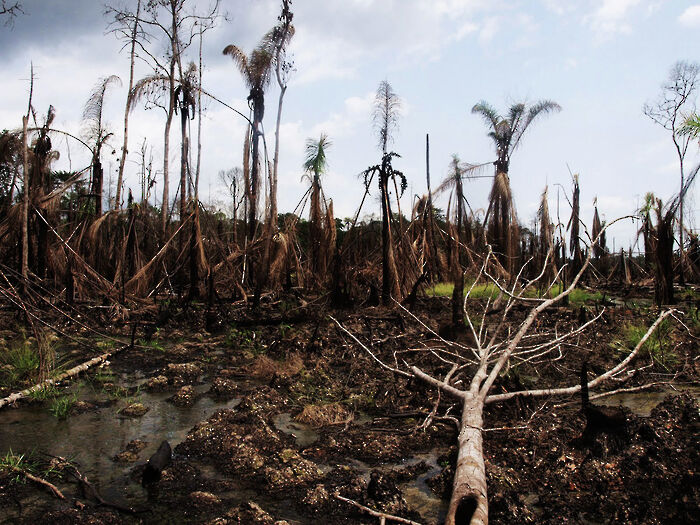Nigerian environmental justice group calls on University to divest
Cambridge Zero Carbon Society and the CUSU BME Campaign have supported the organisation, which represents people affected by oil spills in the Niger Delta

The Movement for the Survival of the Ogoni People (MOSOP) has called on the University to “cut all ties with Shell” in a letter sent to Cambridge Zero Carbon Society. MOSOP is a non-violent social movement that campaigns for environmental justice in Nigeria’s Niger Delta, an oil-rich region that suffered environmental damage as a result of Shell’s activities.
The letter, sent on Tuesday and addressed to the University, said that “Our drinking water has been poisoned,” blaming Shell for the deaths of Ogoni people.
It goes on to reference the execution of MOSOP’s President, Ken Saro-Wiwa, and other MOSOP leaders by the Nigerian government. They said: “We still hold Shell accountable for the killing of our people including the 1995 hanging of our leaders” In 2009, The Guardian reported that Shell paid a $15.5 million settlement for having “collaborated” with the Nigerian government in the execution of the MOSOP leaders.
MOSOP encouraged the University to cut ties in order “to signal its disagreement with corporate irresponsibility,” adding that “we strongly stand with Cambridge Zero Carbon Society in this fight for a greener and safer world.”
Cambridge Zero Carbon Society and the CUSU BME Campaign sent a joint statement to the University Council in response to MOSOP’s letter, writing that they “do not believe that passive recognition is enough.”
Arguing for full divestment, the statement voiced solidarity with the Ogoni people against “the neo-colonial violence that heavily targets people of colour around the world.” They continued that their commitment to decolonisation “means that we must hold the University accountable for funding oppressive structures which make it an active agent of marginalisation.”
The statement concluded, “we hope that in the forthcoming Council meeting, you will recognise our complicity in the suffering of the Ogoni people, and take action in responding to their grievances through voting for full divestment from fossil fuels.”
When asked whether the University will take MOSOP’s letter into account at the Council meeting, a representative wrote that “The Council will consider all aspects of divestment, including ethical issues, in its response to the working group on divestment’s final report. It expects to publish that response and the working group report in full after the next Council meeting later this month.”
The statement added that the University “is already taking steps” to “deliver a carbon neutral future”. It said that the University holds no direct investments in “the most pollutive industries, such as thermal coal and tar sands” and “only negligible holdings” through externally-managed investments.
The Ogoni region has suffered a number of oil spills, and in 2015 Shell paid a £54 million settlement to the people of Bodo, Nigeria for oil spills which occurred in 2008 and 2009.
Shell commented to The Guardian that they have “accepted responsibility” for the oil spills “from the outset,” but that oil theft and illegal refining “remains the main cause of environmental pollution and is the real tragedy of the Niger Delta.”
The UN reported in 2011 that pollution from oil production in Ogoniland had made agriculture unviable and had contaminated drinking water with carcinogens. The report estimated that it would take up to 30 years to rehabilitate the damage.
Vice-chancellor Stephen Toope’s academic career has focused on human rights. Toope worked as a consultant for a number of UN agencies, including as the chair of the organisation’s working group on enforced and involuntary disappearances.
 News / Cambridge student numbers fall amid nationwide decline14 April 2025
News / Cambridge student numbers fall amid nationwide decline14 April 2025 Lifestyle / First year, take two: returning after intermission14 April 2025
Lifestyle / First year, take two: returning after intermission14 April 2025 News / First candidate to announce chancellorship bid pledges to tackle bullying 12 April 2025
News / First candidate to announce chancellorship bid pledges to tackle bullying 12 April 2025 News / Uni to ‘review’ tripos rankings and weekend lectures in undergrad teaching overhaul10 April 2025
News / Uni to ‘review’ tripos rankings and weekend lectures in undergrad teaching overhaul10 April 2025 Sport / Cambridge celebrate clean sweep at Boat Race 202514 April 2025
Sport / Cambridge celebrate clean sweep at Boat Race 202514 April 2025




